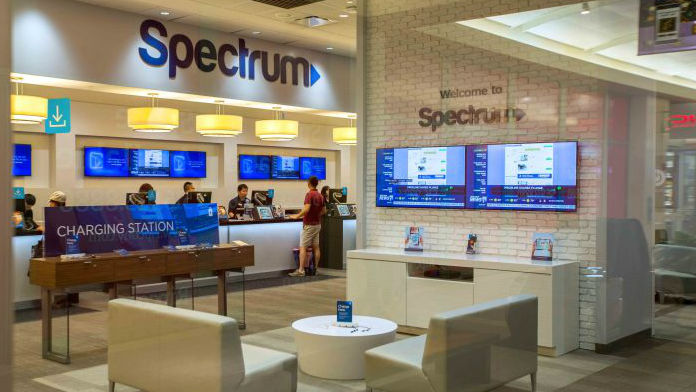Charter Testing Mobile Product with 5K Employees
The smarter way to stay on top of the multichannel video marketplace. Sign up below.
You are now subscribed
Your newsletter sign-up was successful

In anticipation of the commercial launch of its mobile product, Charter Communications recently kicked off a field trial with 5,000 employees, with plans to have them go through the end-to-end sales activation and service process in May, Charter chairman and CEO Tom Rutledge said Friday on the company’s Q1 call.
Charter is also in the process of building out its sales channels and service capabilities for the coming product, a project that includes modifying several hundred of its retail stores and preparing its call centers.
Rutledge said Charter is likewise on track to launch the offering, which will be called Spectrum Mobile and lean on an MVNO deal with Verizon Wireless, around mid-2018.
Charter has not announced specifics on how it will price and sell its new mobile product, which will also take advantage of Charter’s WiFi infrastructure.
“Ultimately, the goal is to use our mobile service to attract and retain cable bundled, multi-product customers,” he said.
Rutledge also said the 50/50 joint venture with Comcast focused on the mobile backoffice platform and operations will help Charter accelerate its ability to scale its mobile offering.
RELATED: Comcast, Charter Form Mobile Platform Partnership
The smarter way to stay on top of the multichannel video marketplace. Sign up below.
He also reiterated Charter’s plan to underpin the company’s wireless/mobile effort using a mix of licensed and unlicensed spectrum, including millimeter wave spectrum in the neighborhood of 28 GHz as well as the emerging shared spectrum CBRS 3.5 GHz band.
RELATED: Charter Sees Potential Compromise on CBRS License Areas
Rutledge estimated that Charter has about 250 million authenticated wireless devices connected to its network of 25 million small cells.
RELATED: Small Cells to Play Big Role in Charter’s Mobile Future
Charter didn’t outline specific EBITA losses it will absorb from the mobile services rollout, but using those at Comcast is “as a proxy as good as any at this point,” Charter CFO Chris Winfrey, said.
Comcast’s Xfinity Mobile business generated an EBIDTA loss of $189 million in Q1.
RELATED: Comcast Adds 197K Xfinity Mobile Customer Lines in Q1
“The biggest driver there is the level of subscriber acquisition…there’s a lot of upfront subscriber acquisition costs,” Winfrey said. “Once you get to a steady year state growth the business not only has a positive EBIDTA, but a positive free cash flow contribution on a stand-alone basis. So the faster we grow, the more short-term pressure we put onto EBITDA and free cash flow."
Though pricing and packaging and marketing of their respective mobile products will differ, Charter also sees the J.V. with Comcast as a reducer of operating costs.
“The impact is driven by the speed at which we roll the business out and how successful we are in the market,” Rutledge added.
Moving to broadband, about 25% of Charter’s customer base gets minimum downstream speeds of 200 Mbps, and DOCSIS 3.1, along with 1-Gig services, is deployed to about 43% of that footprint. Charter expects to wrap its network deployment of D3.1 by year end.
RELATED: Charter Brings Spectrum Internet Gig Service to 14M More Homes
Charter capex spending rose $628 million year-over-year, to $2.18 billion, driven by an all-digital transition that requires the purchase and rollout of new two-way set-tops and other consumer premises equipment. Just $17 million of capex in Q1 was mobile-related. Charter expects cable capital intensity this year to be a bit lower than 2017, however.
Rutledge said Charter expects to be wholly-digitized by year and as it completes the process in legacy Time Warner Cable and Bright House Network areas.
